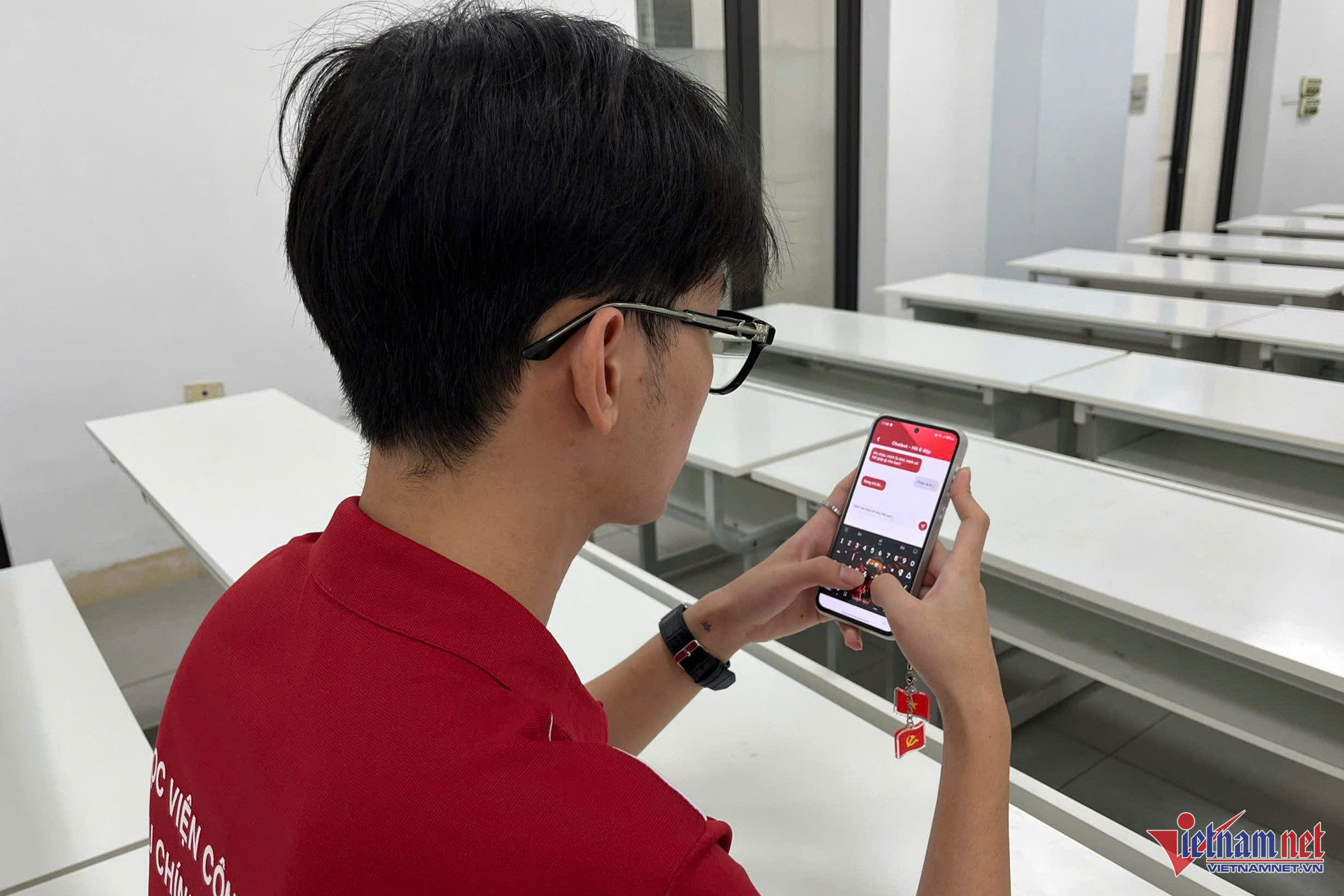
“My mother, a primary school teacher for 30 years, learned to use ChatGPT to create illustrative data and make more engaging slides,” Nguyen Dang Son Lam, a data science expert at VNPT AI, said at a networking event launching the 2025 Vietnam Talent Award.
Lam said that learning must never stop, and young people need to adapt to new technologies. By leveraging AI’s ability to rapidly synthesize data from the vast internet, individuals can “boost” their work, freeing up time to focus on their strengths and enhance value.
AI offers opportunities for high-skilled professionals. For instance, financial analysts no longer need to compile reports but can focus on analyzing and extracting valuable insights, while doctors can use AI-provided test results and preliminary assessments to make decisions and develop treatment plans.
However, according to Lam, accessing AI’s opportunities requires overcoming its challenges. He highlighted the greatest risk: over-reliance on AI, which can diminish personal value. While teaching at a university recently, he noticed a common issue—people present results from AI tools like ChatGPT without understanding the underlying data or rationale.
“Using AI for ideas is very useful, but without understanding the essence of what you’re doing, your personal value will be diminished in the digital age,” he said.
He also posed a question: Will you use AI to boost productivity and efficiency, then use the time saved to learn new things, or merely for entertainment, risking being left behind?
Le Anh Van, Director of VNPT GenerativeAI Platform, noted that businesses have high demands for high-quality AI talent. Job positions in need include natural language processing, image and voice processing, and data analysis. Particularly, operation officers and DevOps are critically understaffed.
From a recruiter’s perspective, he highlighted three essential skills for young people to develop while still in school: mandatory technical skills, including programming and algorithms; proactive problem-solving and deep inquiry; and critical thinking, as over-dependence on AI poses risks to both individuals and organizations.
Nguyen Long, Vice Chair and General Secretary of the Vietnam Informatics Association and Chair of the Vietnam Talent Award Judging Panel, stated that everyone has the right to dream of creating valuable products. However, they must first hone basic skills and build creative thinking to tackle new challenges.
Every profession requires a strong foundation, and for IT, this includes mathematics, probability, calculus, geometry, logic, combinatorics, and especially data science.
To adapt quickly to new technology, curiosity and a willingness to experiment are vital. Additionally, a robust environment for gaining experience and developing skills is indispensable.
Digital literacy movement
According to the Ministry of Science and Technology (MOST), AI is a cornerstone of digital skills in the new era, so the digital knowledge and skill framework emphasizes integrating AI usage and adaptation skills.
Following the directive of General Secretary To Lam, Head of the Central Steering Committee for Science, Technology, Innovation, and Digital Transformation, the “Digital Literacy Movement” has been launched nationwide.
This initiative aims to equip all citizens with essential digital knowledge and skills for daily life, enabling them to utilize and benefit from the advancements of science, technology, innovation, and digital transformation.
To realize this mission, MOST recently issued the “Basic Digital Knowledge and Skill Framework (Version 1.0)” and “Guidelines for Assessing and Certifying Digital Skills Completion.”
The framework includes digital awareness (covering digital transformation, digital technology, and AI) and outlines 23 basic digital skills grouped into six categories: device usage, data and information exploitation, communication and collaboration in digital environments, digital content creation, safety assurance, and problem-solving.
To facilitate organizations, agencies, and businesses in implementing the “Digital Literacy Movement,” MOST has defined the basic digital skills framework and guidelines for assessing and certifying digital skills completion for four main groups: citizens, students, public sector employees, and enterprise employees.
The initiative encourages building a lifelong learning society, where citizens proactively enhance their digital knowledge and skills, fostering a dynamic, creative, and tech-adaptive community, and promoting equitable and responsible participation in the digital society.
MOST noted that the basic digital skills framework is designed to meet practical needs in work, education, and daily life, ensuring all citizens can access and apply digital technology effectively.
As part of the “Digital Literacy Movement”, in late April 2025, MOST approved two open online training platforms—MobiEdu by MobiFone and OneTouch by VTC - to provide free basic digital and technological skills training to citizens, public sector employees, enterprise workers, and students.
Le My